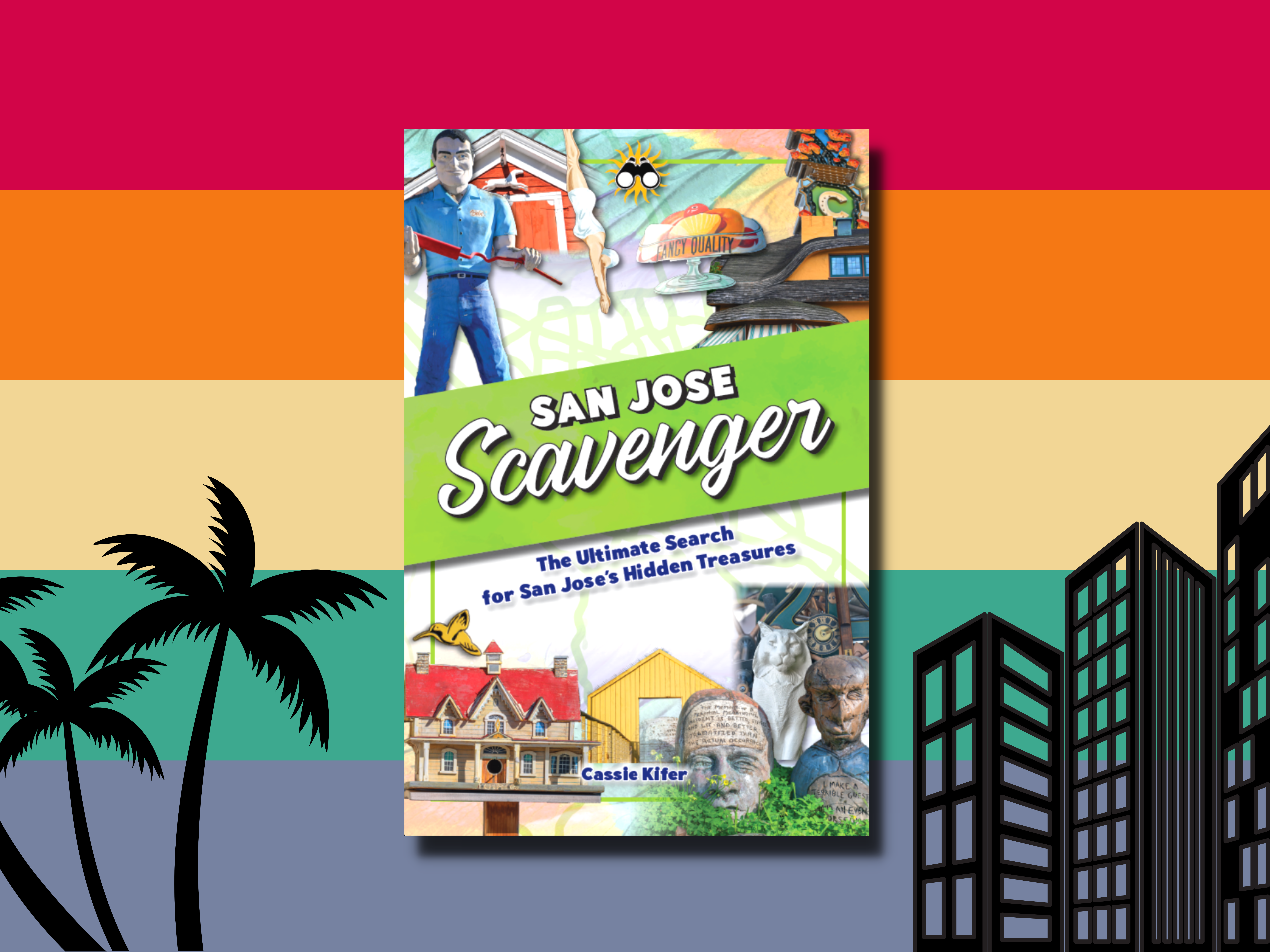Armed with pen and paper, a camera and our trusty Google Maps, my small group of friends and I bundled into a car to discover the hidden wonders of Palo Alto in an attempt to make winter break more entertaining. On the dashboard, a copy of Cassie Kifer’s “San Jose Scavenger” marked the trail with black-and-white image snippets, riddles for clues and icons to nudge us in the right direction. The goal? To see if we could complete a scavenger hunt against the clock of daylight.
An unassuming spiral-bound paperback, “San Jose Scavenger” is a self-guided scavenger hunt broken up over 20 locations in Santa Clara County, ranging from Downtown San Jose to Gilroy and Morgan Hill. Each chapter is self-contained and the hunts can be completed in any order, making choosing a hunt a simple matter of convenience.
Each of the Stanford, Palo Alto and Downtown San Jose scavenger hunts offered different experiences in terms of navigation, activity choice and complexity. The first — which I completed mostly by myself — showed me parts of campus that I didn’t know existed. The riddles provided interesting tidbits of historical information, particularly about the Stanford family (“Crafted to honor Jane’s brother at rest, Who lived with her after her husband passed. Modeled on a famous statue in Rome, Her brother was buried beneath this stone”).
Further ventures led me to the heart of campus and into a secluded, woody corner with exquisite South Pacific artistry. There I read about trickster beings from folklore and admired a reinterpretation of Rodin’s famous “The Thinker.” The journey rounded off with a rainy ramble down Page Mill Road to discover a medieval brick tower brought to life by a French landowner and desecrated with names of curious passers-by.
Palo Alto, on the other hand, was a treat because most of the locations could easily be found within walking distance after organizing the clues into a trail. Following the footsteps of tech giants, we stopped by some famous former offices (and an even more famous Silicon Valley garage). Technology transitioned to art as the book introduced us to a new art form — trompe l’oeil — leading us on a search for illusory murals on the walls of public buildings. This walk through downtown Palo Alto revealed depictions of aliens in strollers and UFOs crashing into walls. Familiar buildings like the Stanford Theater and the Cardinal Hotel greeted us as we turned a corner and ended up in a literary haven: an old bookstore with floor-to-ceiling shelves of carefully curated first-edition classics and signed copies.
After spending over an hour satiating our bookish curiosities, our next clue informed us that Palo Alto played host to several notable psychedelic and folk rock performances, contrasting sharply with the rigorous big tech image that encompasses the Bay today. As we ended the day marking the spot of Stanford’s mascot, we realized that we had gone out of our way to study local archives and take our time exploring the locations themselves, rather than just checking them off a list.
Although the author claims that the routes are designed to be walkable and bike-friendly, my experience confirms that you would need a car or a convenient form of public transport to reach some of the more geographically spread-out landmarks. As I was determined to complete the Stanford scavenger hunt on foot, I discovered this feat to be immensely difficult in the absence of Marguerite shuttles. As for the Downtown San Jose hunt, even the aid of a car was insufficient in exploring the entire area in one day because of the sheer number of things to see and do.
After a fulfilling day of exploring Palo Alto, my friends and I dispersed not just with a greater knowledge of this small South Bay city, but also with a better understanding of each other through communication and collaboration. “San Jose Scavenger” may not be the best investment for a rainy winter break, but it is otherwise a stimulating and entertaining activity for individuals and groups of all kinds, covering a wide variety of places in nature, technology, the arts and community life. I would suggest taking a few days for each chapter in order to properly explore the locations you happen to visit, but if you are in one of the smaller cities with fewer clues, you could easily turn it into a day trip. Whatever adventure you choose, an insightful experience awaits you.
Editor’s Note: This article is a review and includes subjective thoughts, opinions and critiques.
